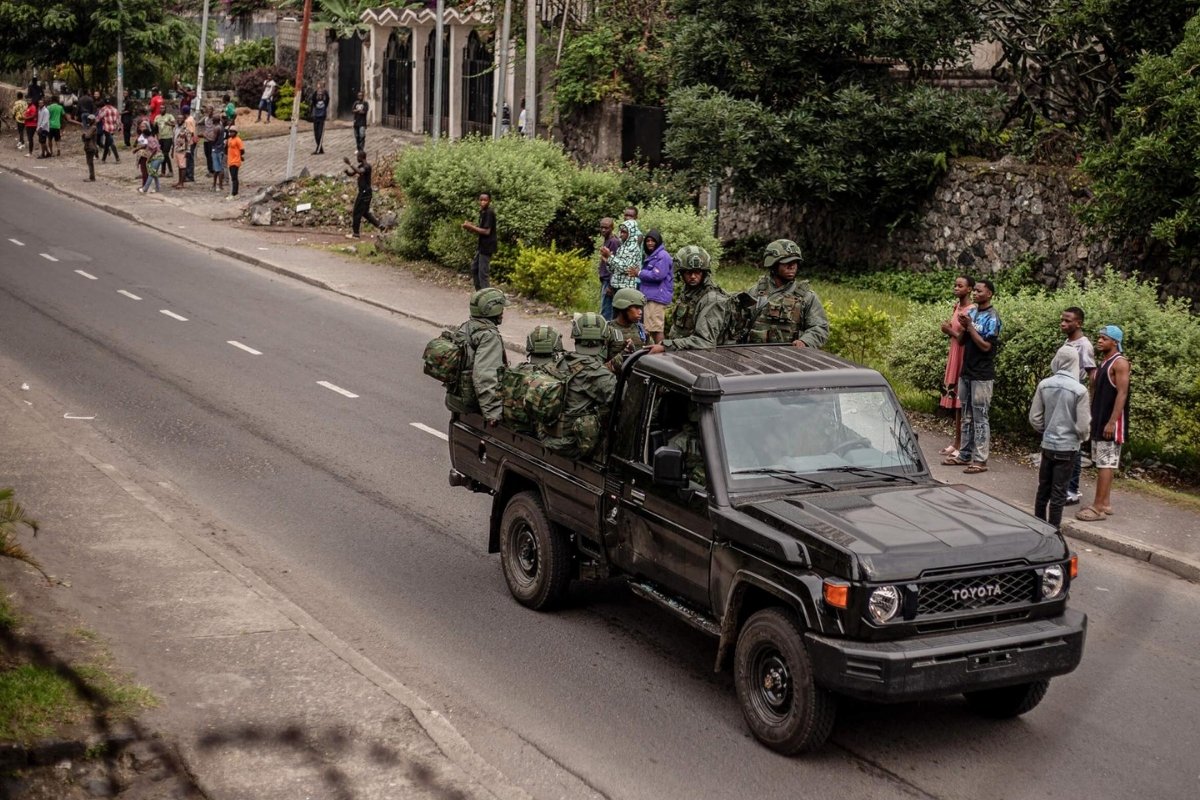
What is M23? M23, also known as the March 23 Movement, is a rebel group based in the Democratic Republic of Congo (DRC). Formed in 2012, it emerged from a mutiny by soldiers who were part of a previous rebel group, the National Congress for the Defense of the People (CNDP). These soldiers claimed the DRC government failed to honor a peace agreement signed on March 23, 2009, hence the name. M23 has been involved in numerous conflicts, primarily in the eastern regions of the DRC, and has been accused of various human rights abuses. Understanding M23 is crucial for grasping the complexities of the ongoing conflict in the DRC.
M23: A Brief Overview
The M23, also known as the March 23 Movement, is a rebel group that has been active in the Democratic Republic of Congo (DRC). This group has a complex history and has been involved in various conflicts in the region. Here are some intriguing facts about M23 that shed light on its origins, activities, and impact.
-
Origins: M23 was formed in April 2012 by former members of the National Congress for the Defense of the People (CNDP), a rebel group that had integrated into the Congolese army.
-
Name Significance: The name "March 23 Movement" refers to the date of a peace agreement signed on March 23, 2009, between the Congolese government and the CNDP, which M23 claims was never fully implemented.
-
Leadership: M23 was initially led by Bosco Ntaganda, a former general in the Congolese army who was later indicted by the International Criminal Court (ICC) for war crimes.
-
Ethnic Tensions: The group primarily consists of ethnic Tutsis, and its formation was partly driven by ethnic tensions in the eastern DRC, particularly in the North Kivu province.
-
Territorial Control: At its peak, M23 controlled significant territories in North Kivu, including the provincial capital, Goma, which they captured in November 2012.
M23's Military Activities
M23 has been involved in various military operations and conflicts, often clashing with the Congolese army and other rebel groups. Here are some key facts about their military activities.
-
Goma Capture: The capture of Goma in November 2012 was a significant military achievement for M23, drawing international attention and condemnation.
-
Human Rights Violations: M23 has been accused of numerous human rights violations, including killings, rapes, and the recruitment of child soldiers.
-
International Involvement: The United Nations and various human rights organizations have accused neighboring Rwanda and Uganda of supporting M23, although both countries have denied these allegations.
-
Defections: Over time, M23 experienced several defections, with many fighters and leaders surrendering to the Congolese army or fleeing to neighboring countries.
-
Ceasefire and Peace Talks: In December 2013, M23 declared an end to its rebellion following a series of defeats by the Congolese army, leading to peace talks and a ceasefire agreement.
Impact on Civilians
The activities of M23 have had a profound impact on the civilian population in the regions where they operated. Here are some facts highlighting this impact.
-
Displacement: The conflict involving M23 led to the displacement of hundreds of thousands of people, creating a humanitarian crisis in the eastern DRC.
-
Humanitarian Aid: Various international organizations, including the United Nations, have provided humanitarian aid to the displaced populations affected by the conflict.
-
Economic Disruption: The presence of M23 and ongoing conflicts severely disrupted local economies, affecting livelihoods and access to basic services.
-
Peacekeeping Efforts: The United Nations Organization Stabilization Mission in the Democratic Republic of the Congo (MONUSCO) has been actively involved in peacekeeping efforts to protect civilians and support the Congolese government.
-
Reintegration Programs: Efforts have been made to reintegrate former M23 fighters into civilian life, including vocational training and education programs.
Current Status and Legacy
Although M23 is no longer as active as it once was, its legacy continues to influence the region. Here are some facts about its current status and lasting impact.
-
Resurgence Fears: There have been periodic fears of M23's resurgence, with reports of regrouping and rearming in neighboring countries.
-
War Crimes Trials: Several M23 leaders, including Bosco Ntaganda, have faced trials at the ICC for war crimes and crimes against humanity.
-
Political Influence: The conflict involving M23 has had lasting political implications in the DRC, influencing government policies and international relations.
-
Security Reforms: The Congolese government has undertaken various security sector reforms to prevent the re-emergence of rebel groups like M23.
-
Continued Monitoring: International organizations and human rights groups continue to monitor the situation in the eastern DRC to ensure that peace and stability are maintained.
The Final Word on M23
M23 is a fascinating topic with layers of history, conflict, and resilience. From its origins in the Democratic Republic of Congo to its impact on regional stability, understanding M23 sheds light on broader issues in Central Africa. The group’s formation, goals, and actions have left a significant mark on the region. Knowing these facts helps us grasp the complexities of armed movements and their far-reaching consequences.
Learning about M23 isn't just about knowing dates and events. It's about recognizing the human stories behind the headlines. The struggles, hopes, and challenges faced by those involved are real and impactful. By staying informed, we can better appreciate the nuances of global conflicts and the importance of peace efforts.
So, next time you hear about M23, you'll have a deeper understanding of what’s at stake and why it matters.
Was this page helpful?
Our commitment to delivering trustworthy and engaging content is at the heart of what we do. Each fact on our site is contributed by real users like you, bringing a wealth of diverse insights and information. To ensure the highest standards of accuracy and reliability, our dedicated editors meticulously review each submission. This process guarantees that the facts we share are not only fascinating but also credible. Trust in our commitment to quality and authenticity as you explore and learn with us.
